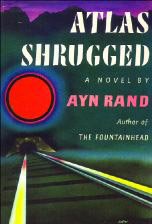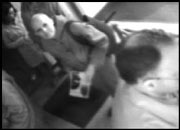Before we discuss Seamus Heaney (and we will do so shortly, and it will not be pretty) we have a small item of business to deal with: Put down this paper, get yourself to a phone, and call Seattle Arts & Lectures (206-621-2230) for your tickets to Zadie Smith (Benaroya Hall, Tuesday, Nov. 12). Let there be no doubt, Zadie Smith is younger, smarter, and more important than you will ever be. Her first book—in case you’re just joining us—was White Teeth, her new book is The Autograph Man, and her accent alone—English—slays us. (Although can something be done about her hair? Suddenly straight, stricken—what happened to it?) Zadie will sell out (Seamus, for his part, came close), and you will be sorry, and the Nightstand will have neither recourse nor sympathy nor a saved seat. (Dear friends, that includes all of you. We already have a date, and he’s gorgeous.)
All set, then? Excellent. Let the shredding of Seamus commence. Seamus Heaney, who, in his infinite, Nobel Prize-garnering grandeur, was woefully unprepared to address 2,000 people in a coherent manner (though one of the Nightstand’s companions did confess to finding him adorably grandfatherly and “kind of cute”), last week presented a lecture (if that’s even the word for it) that contained about as much acuity, accomplishment, and intellectual ballast as can be found in a kicky Natalie Cole ballad. To wit: He actually (for we have not the resources to make this kind of thing up) pulled apart the word “poetry” by assigning meaning to each letter. That is, p is for poet (one who writes poems); for praise (“one of the fundamental impulses of poetry”); for pleasure (that’s “part of the game”); for politics (that’s “part of the responsibility”). . . . At this point, of course, our fundamental impulse was to shoot somebody.
He went on. “You could go to pulse—a connection with the body. You can go as far as you want to,” he said, “but we have to get to o.”
We do?
Surely Seamus, a man of letters and a man of this world, must realize that he’s arrived unlaureately late to the acrostic party, in the unfashionable wake of such dubious figures as Sue “T Is for Tedious” Grafton and, yes, Natalie Cole. (Our better half does an impression of Natalie Cole doing “L-O-V-E”—you know: “L is for the way you look at me,” et. al—that would make you weep.)
So we got through o (Orpheus, Wilfred Owen, order); e (emotion, eros, execute me now); t (time, technique, this will last forever, we are going to die at Benaroya Hall); r (runic, rhetoric, rage); y (you clearly didn’t think about what you were going to talk about until five minutes ago, Seamus).
It’s not as fun as it seems beating up on a dignified, nice-seeming old man whose bone-chilling early poems about plows and potatoes (we’re being flippant now; they are excellent) he recites movingly, almost numinously, from memory. From “Digging”:
Under my window, a clean rasping sound
When the spade sinks into gravelly ground:
My father, digging. I look down . . .
When you’ve written poems that are as good as “Digging,” you can lecture on whatever you’d like—which, as we learned last week, isn’t always a good thing.







